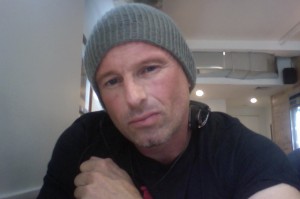Who Are You?
Forget “to be” — this is the question.
Recently at the annual Fitness Summit, I spoke about the importance of branding from a fitness pro’s perspective.
Branding isn’t just about marketing or “cutting through the noise.” A strong brand will define your career.
It will define you.
The Big Paradox
First the paradox. You need a strong, consistent brand to survive. Yet the fitness industry thrives on change. So how can you “plant a flag” and ostensibly say, “this is my shit” and still be relevant in 5 or 10 or 20 years?
I hear you scoffing. “My systems get results.” They probably do. At least for those hearing your message and buying in.
But the population isn’t getting any thinner. Obviously there’s a lot of people you’re not reaching.
And let’s not forget, most trainers — even many smart, capable ones — fail to survive past the 18-month mark.
“Results” and “experience” don’t matter if you’re tits up cause the latest Flavor of The Week drowned your message and squeezed you out.
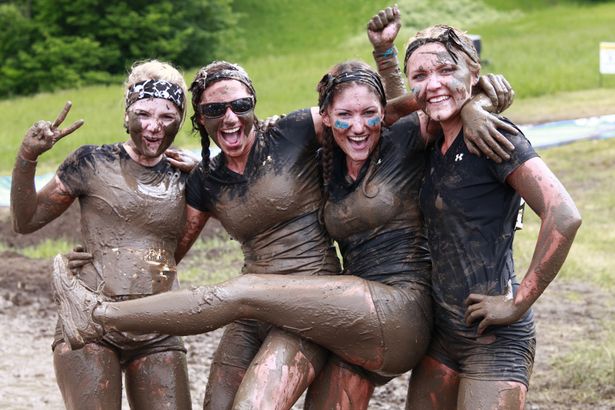
Trendsetter
If you’ve been in this racket as long as I have you’ve seen how trends explode almost out of nowhere. Some flame out as quickly as they arrived while others hang around well past their relevancy date, like 40 year-old boys refusing to leave Mom’s basement.
The classic Olympic lifts combined with competition and camaraderie becomes the cult of Crossfit. A handful of treadmill burnouts opting to take their runs outside turns into thousands of weekend warriors literally jumping through hoops and running through mud pools.
These trends are loud and have tremendous mainstream reach. Ten years ago you’d have to have serious chutzpah to ask a 40 year-old woman about her snatch. Thanks to Crossfit, now you don’t have to ask — she’ll tell you about it.
So trends are like supernovas. But you need to be able to spot them. In 2000 or so a gym owner looking to expand asked me what I thought of a little Canadian company called Lululemon. “They’re out of Vancouver. They make comfy yoga pants,” he said. “I think women will love them.”
I thought of my own workout attire, which consisted of (sleeveless) college T-shirts and sweats. “Dude, clothing is a nightmare,” I scoffed. “Especially workout wear. And yoga? Really? You’ll never make money.”

I’d like to rethink that one.
Some say the trick is to stay “loose” and adaptable. Be among the first to strike, the first to evolve. You don’t want to the be the fitness industry equivalent of the knuckle-dragging Neanderthal, fervently rubbing two sticks together to make fire when the less hairy guy the next cave over is grilling his mammoth on a gas barbecue.
However, that knuckle-dragger’s diet? Totally hot. Because as any paleontologist will tell you, the average Paleo Man lived to be 85 with sub 10% bodyfat and a 4-minute Fran time.
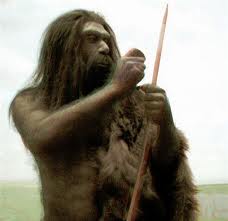
Been There, Done That
Here’s the rub, and why you need a strong brand:
It’s all been done before. There’s literally nothing new. It’s a great big cycle.
When I was cutting my teeth in the 80’s, physique competitors followed ultra low fat diets. A decade letter, ground beef, whole eggs, and heavy cream replaced the bodybuilding Holy Trinity of chicken, egg whites, and tuna – just no carbs.
But even that wasn’t new. It was the same diet guys used in the 60’s, now with a shitload of Sorbitol and a lot of air freshener.
Today the aforementioned Paleo movement is hot, although it’s starting to take on water as the merciless U-boat Das Science repeatedly torpedos it like a doomed Allied supply ship sneaking across the English Channel.
The next thing? This morning I read of combining the perpetually at-war dietary factions, If It Fits Your Macros (IIFYM), and its arch nemesis, Clean Eating. But if you think you’re among the first to broker this peace agreement, I’d hate to burst your bubble — bodybuilders have been doing that for 40 years. Sorry, no Nobel Peace Prize for you, Henry Kissinger.
If my crystal ball is correct, soon we’ll see ultra low fat diets and high volume training — which again, were big in the 80’s — along with “one set to failure” and 30-minute workouts. The latter, like group fitness, is also a highly profitable business model, so watch how the economy performs — that can dictate exercise trends. It has before.
So that’s the industry, the business. But change, evolution, shouldn’t be your brand.
It shouldn’t be you.
USP
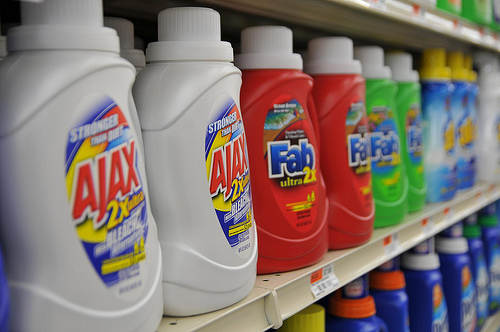
In my talk I said everyone must discover his or her USP. USP, a marketing term, is short for Unique Selling Position. It’s what makes one box of detergent different from the other dozen or so on the shelf and marketers spend a lot of money trying to make you see it.
It’s also what makes you different from every other fitness yodel. It’s what makes you, you.
You have two choices. You can base your USP on doing what’s trending — raw-food wheatgrass Yoga last year; mud-run Paleo SoulCycle this year, etc. — or you can base it on you.
If you’re in this to make money, do the former. Seriously. But if you’re in it to be happy and affect positive change, do the latter. Here’s how.
Step One: Love

First you have to identify what you love. This should be easy. What activities do you turn your life upside down just to fit in? For me it’s working out to build muscle and lose fat, or bodybuilding. I think the sweet spot where health and body composition intersect is the most beautiful place in the world. I wish everyone could live there.
I love being muscular. I love abs and veins and even the way Tupperware dominates my kitchen cupboards like a game of Jenga gone hopelessly bad. I love hearing people say “you’re in great shape for your age” — I just choose to ignore the “for your age” part. I get away with that cause after all, with advanced age comes selective hearing.
That’s just me. For you it might be yoga or cycling or swimming or even running.
Step Two: Skill
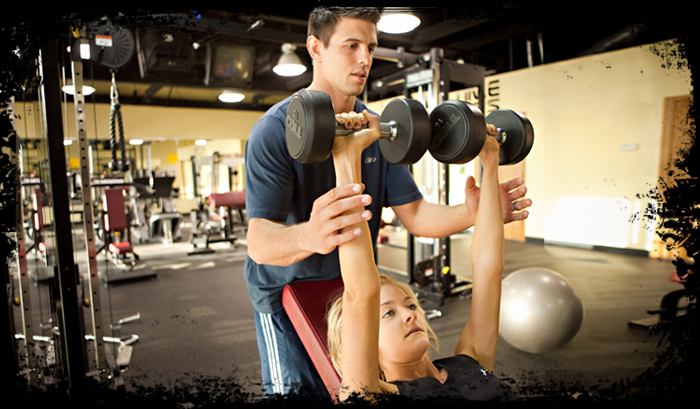
Passion isn’t enough. Now you have to figure out what you’re good at. It’s not easy, because often we absolutely suck at the stuff we love doing.
As much as I love bodybuilding, I have to be honest — I’ll never win a show, unless it’s by default or they hand out style points for cool footwear and hipster hats. It’s just not in the cards.
What I am good at is writing. That’s my skill, I guess. Always has been, since I was a chubby kid writing short stories and drinking Nestle Quik to my years in college and university.
I’ve also experienced success training non-elite, healthy populations. It didn’t come as naturally mind you, but I took the certifications and attended the seminars and mentored under the right people — and most importantly, channeled my passion into time under the bar.
It’s not a cutting edge niche but it’s a viable one. It’s guys like me, and I think I’ll always want to work with at least a few of them, be it in-person or online.
Therefore my USP would be helping ordinary people look look better and writing. It may not be unique (or lucrative), but it’s me.
Now what’s yours?
Where do you find success almost by accident? Where did you get A’s in school while basically mailing it in? What “thing” do you do so well that people seek you out for it? Okay, perhaps not that particular thing that gets you the occasional drunken text at 3 am, though a skill is still a skill.
Ask your friends, your spouse, even your boss. What skill do you have that they wish they had for themselves?
It might surprise you.
Just don’t force it. I get emailed at least once a week about being a better writer. Most of the time the hidden message is “I hate writing but I know I should blog and write articles cause everyone else is. How do I write more better?”
At first I’d give generic answers like “have you ever taken a technical writing course?” Now I’m less delicate: “If you hate writing, for shit sake, do something else!”
Take stock of your gifts. If you’re blessed with energy and the gift of gab, do a YouTube video. Do a podcast. If you’re a truly great coach then coach more. Hold a seminar. Teach other trainers. Hell, I’ll go.
You can also partner with someone whose skills match your weaknesses. Are you an awesome trainer but an organizational nightmare? Work with someone good at the book stuff. Hate macro counting? Pay a food nerd to design your clients’ diets. Get them in awesome shape.
Get them to design your diet. Get jacked as fuck, as I’ve been known to say after a few cold ones. No one ever hired a trainer and said, “She’s nice and smart but I really wish she was out of shape.”
And if you absolutely must write, hire a ghostwriter. You wouldn’t be the first, trust me. Spend your time working your strengths, not belaboring your weaknesses.
It’s Your Choice

In a perfect world loving something would be enough for a lasting career. But that’s only half the equation. You have to see where you can marry your passion with your talent. That’s a recipe for a rewarding, fulfilling career. So start there, and end there.
Or you can watch the trends, and with ninja-like dexterity hop on the next low-carb/gluten-free/raw food trend when it’s on the upswing. Get in, make your money, and cash out. Then reinvent yourself and repeat.
One path requires considerable soul searching. The other? No soul whatsoever.
I know who I’d want to be.
Bryan
